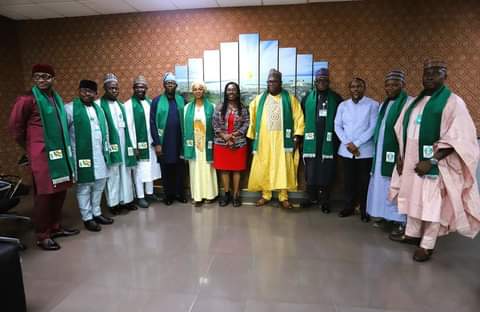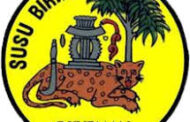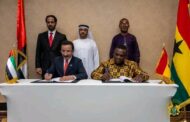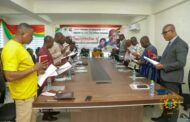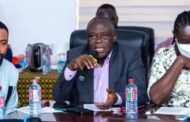The Ministry of Communications and Digitalization welcomed delegates from the Nigerian government today at the Ministry’s conference room to share Ghana’s success stories and experiences in leveraging digital technologies for economic development.
The leader of the delegation Mr. Suleiman Muhammed Kabir who doubles as the Secretary and Director of Administration said the team is on a study tour as part of the Presidential Initiative on annual thematic issues, focusing on the digital economy, youth empowerment, and sustainable job creation. The delegation aims to learn from Ghana’s experiences and adapt strategies to support Nigeria’s own digital economy initiatives.
Mr. Kabir stated that the delegation is here to learn from Ghana’s success stories and experiences in leveraging digital technologies to drive economic development. “Our team consists of individuals from various sectors, including the military, academia, diplomacy, and the private sector”, he said.
Head of Policy, Planning, Budgeting, Monitoring and Evaluation (PPBME) of the Ministry of Communications, Mr. Emmanuel Ofori, highlighted Ghana’s journey towards digitalization and the progress made since 2021, despite challenges in reaching remote areas.
“In 2021, we added digitalization to our national agenda, with the goal of creating a comprehensive approach to the digital economy. Our president established a central advisory body to ensure coordination and interoperability among various digital initiatives”, he further explained.
Our Ministry has been instrumental in driving this agenda, with the support of our current Minister, Mrs. Ursula Owusu Ekuful (MP), who is passionate about digital transformation. We have made significant progress, but we still face challenges, particularly in reaching remote areas.
The Ministry’s goal is to ensure that everyone, regardless of location, has access to digital services and can participate in the digital economy. We believe that by working together, we can achieve this vision and create more inclusive and prosperous society.
“In the past, education was heavily reliant on physical materials such as textbooks and library books, which were often stolen or lost. However, with the advent of digital technology, access to educational resources has become more convenient and efficient. Now, students can gain access to a single digital book that can be shared by everyone, without the risk of loss or theft.
Moreover, digital technology has enabled online learning, making it possible for students to learn from anywhere, without the need for physical classrooms or universities. This shift has earned recognition and respect, with certificates and credentials being awarded remotely.
This transformation according to Mr Ofori requires a change in policy and strategy. The old policies are no longer relevant, as they did not anticipate the rapid advancements in technology. We need new policies that drive innovation and investment in digital infrastructure, such as computers in schools and cloud technology.
As a country, we have made significant progress in embracing digital technology, and our government has implemented policies to support economic growth. It is essential that we continue to adapt and innovate, ensuring that our policies and strategies align with the rapidly changing landscape of education and technology.”
In attendance were Director, Finance and Administration (F&A), Mr. Alfred Nortey and Staff of MoCD and delegates from the Nigeria government.
Source:Mybrytfmonline.com/Kwabena Nyarko Abronoma



